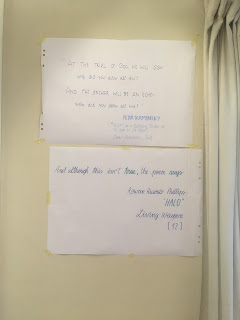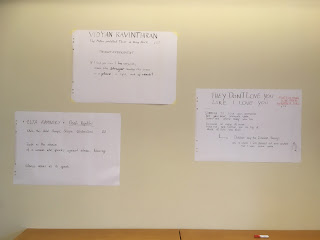During her January 6th Committee testimony, Cassidy Hutchinson, former assistant to President Trump's last White House Chief of Staff, Mark Meadows, repeatedly used the phrase "say something to the effect" to mark non-verbatim quotations: "I overheard the president say something to the effect of: 'I don’t f-ing care that they have weapons. They’re not here to hurt me.'" On English-corpora.org, I found many examples of this phrase, including one by Trump himself during the Republican primary season in February 2016: "The Pope said something to the effect that maybe Donald Trump isn't Christian." It's a common phrase, of course, so this find doesn't "say something" to any effect beyond its serendipity. (Andrew Shields, #111words, 30 June 2022)





